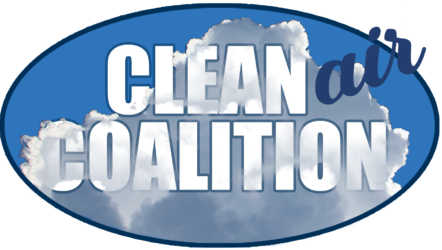The CAC has a new Instagram Page! Follow our social media entries; especially if you agree that what is going on at the Port of Coeymans to benefit Lafarge is appalling!
Resident Responds to TU Story on Coeyman’s Supervisor Conflicts (Media Sanctuary)
Link to the TU story: www.timesunion.com/news/article/re…es-17788779.php
Coeymans’ fate is not yet irretrievable, and has common interests with Guilderland
Friday, February 3, 2023 (printed in Altamont Enterprise)
To the Editor: The headline we would love to see: “Wait, Coeymans is cool now?”
In a recent newspaper column, Chris Churchill disclosed a family attachment to Coxsackie, so it’s understandable that he’d be drawn to cover the Greene County town’s recent efforts to reinvent itself as a Hudson Valley destination suitable for tourism and even residential relocation. Coxsackie has a riverfront business district that is coming to life, a place that is attracting dreamers and believers.
The town’s current revival plan promises a more robust jobs market as well, owing to the anticipated uptick in appealing restaurants, shops, and markets. It’s wonderful to see this evolution, given that only a few years ago the town’s idea for jobs creation was to build another prison.
If only the media, some truly visionary elected officials, and investors would pay attention to Coeymans, one of the few historic Hudson River towns that is the antithesis of the “cool” stuff developing along the riverfront communities from the Henry Hudson Park to Athens to Hudson to Kingston.
The town of Coeymans was named after Barent Pieteres Koijemans (hence the town name) who settled here from Holland in 1639. The town has a striking agricultural and nautical history, gorgeous architecture and riverfront access, and one of the oldest houses in America.
But Coeymans is never considered cool. What happened to this town just 15 miles from the Capital in Albany? Why has it become a burgeoning industrial, waste management, and incineration location?
In 2006, the Coeymans Comprehensive Plan was based on commercial (not industrial) investment and more tourism. That plan was undermined from the start. Many believe that happened because of the influences on the town officials by the owners of some local and multinational businesses.
Over the last few decades, the town has been continually skipped over in attempts to sustainably improve the quality of life and attract residents (the town lost population in the 2020 census). We who live in and close to the town believe these plans have been and continue to be stymied by the interests of multinational and local companies, who despite serial pollution and safety violations, continue to rule the roost. The town government has over the years been run by those who are suspiciously beholden to them.
What some may find shocking is that Coeymans, naturally beautiful and inviting for centuries, is now being set on a path to become one of the largest waste collection, transfer, and incineration sites in the Northeast, as more and more of its rarefied waterfront and undeveloped lands recede ever further from view behind mountains of waste and where residents must continually fight plans to burn tires and other toxic substances in a cement kiln across from the local school.
I know the recent letter to the editor in this paper “What common interests does Guilderland have with rural counties?” addressed redistricting. But I would argue that polluted air, water, soil, and a majestic Hudson River is just one interest the town has in this rural community in Albany County.
Coeymans’ fate is not yet irretrievable — but its hope for a better “Coxsackie” future appears to be fading fast.
Christine Primomo, R.N.
Happy New Year! from Hannacroix Bay Swamp Forest & Garden
The following are selected photos taken in 2022 where the Hannacroix Creek enters the Hudson River. The land is managed by CAC Chair, Barbara Heinzen with help from her friends Eric Remillard and Gil Strizich. All photos on this blog were taken by Barbara Heinzen.
2022 NARRATIVE: Another dry summer started in early July 2022. Several garden plants were stunted while the sweet grass died for lack of water. Many insects were missing again in 2022 while the birds that eat them – orioles, tree swallows, and bluebirds – never settled in for the summer. Small mammals also seemed scarce but the dry conditions favored the wild rice so more will be planted in 2023. The beaver pond dried up over the summer. The lodge and dam by the Hudson River were abandoned. By November, a new beaver lodge and dam appeared in the creek only to be damaged in the December flood.
May we see a more peaceful year in 2023!
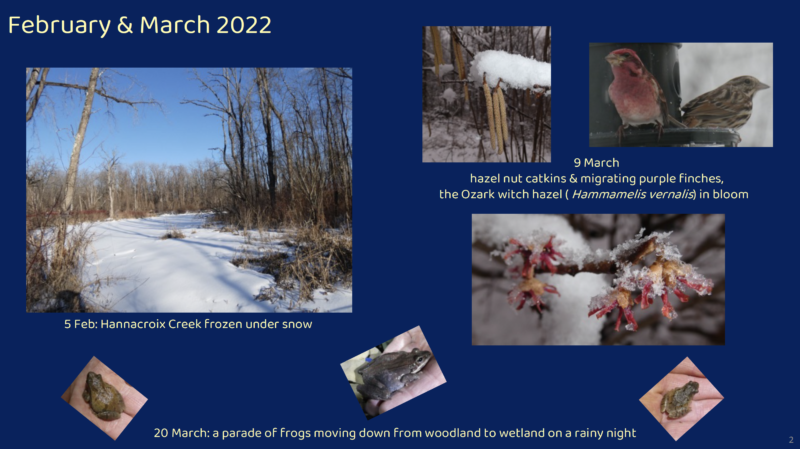
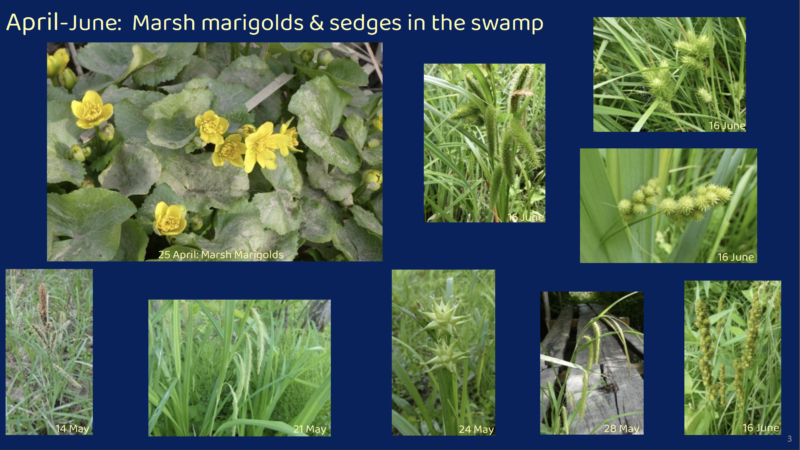
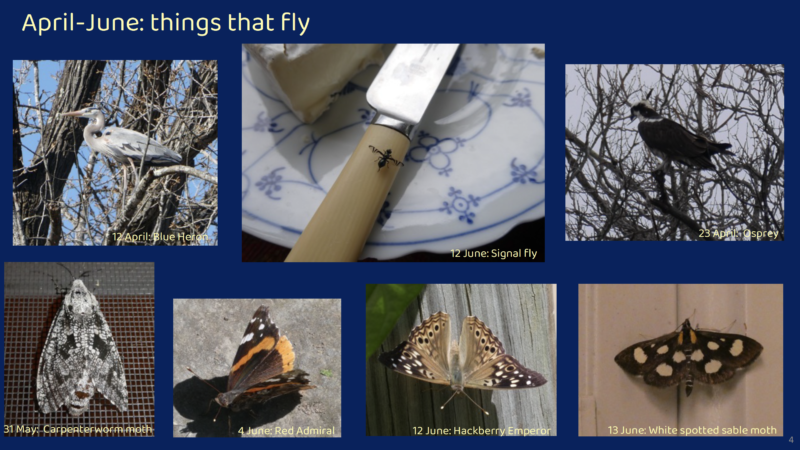
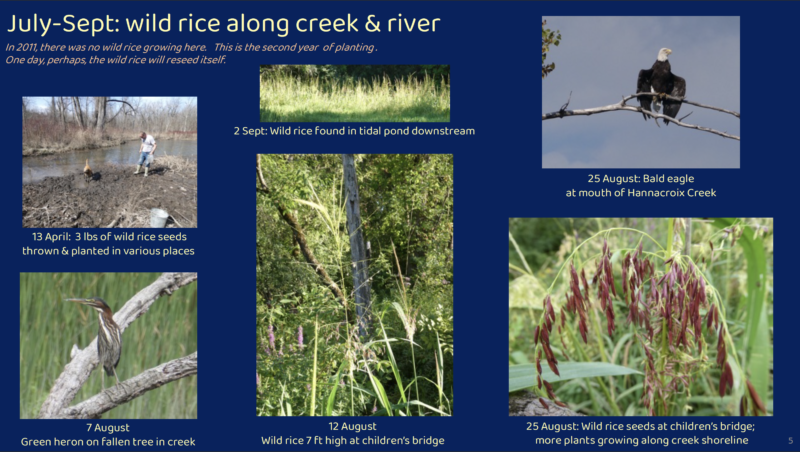
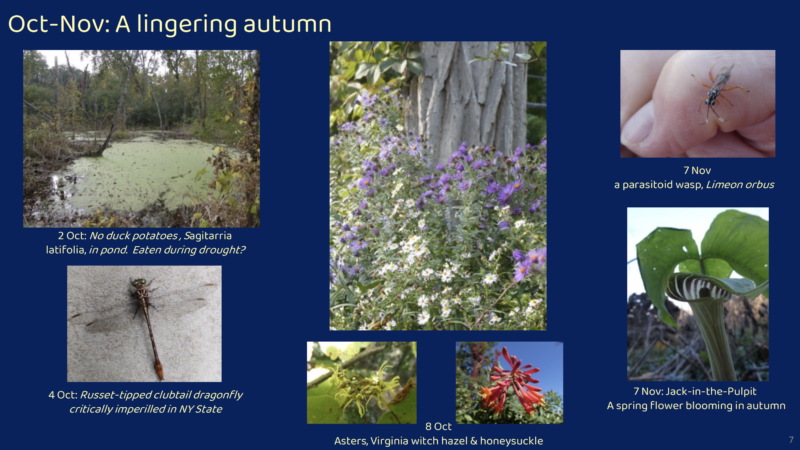
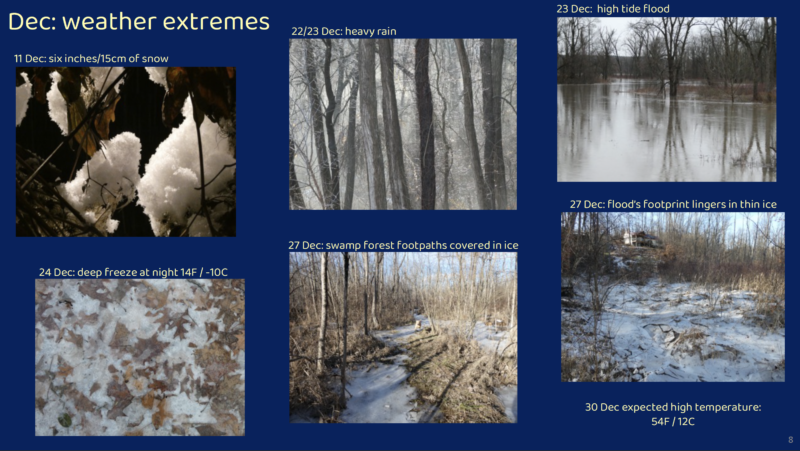
Clean-air activists rail against Port of Coeymans expansion
Altamont Enterprise provides a follow-up to Barbara’s questions per an opinion piece published in their newspaper on September 22, 2022
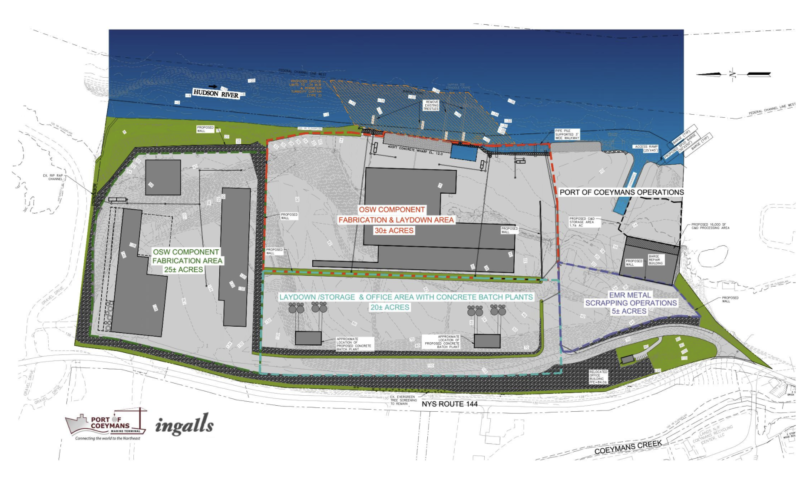
ALBANY COUNTY — With approval from the state’s Department of Environmental Conservation, the industrial port in Coeymans owned by Carver Laraway, head of Carver Companies, is soon to undergo an expansion project that has left some environmental activists concerned.
The project is meant to allow the port to support the construction of offshore wind turbines.
Barbara Heinzen, of the Clean Air Coalition of Greater Ravena-Coeymans, says in a letter to the Enterprise editor this week, that the project will increase the amount of waste burned at the LaFarge Cement plant, in the Coeymans village of Ravena, thereby diminishing the air quality in the region. READ MORE
